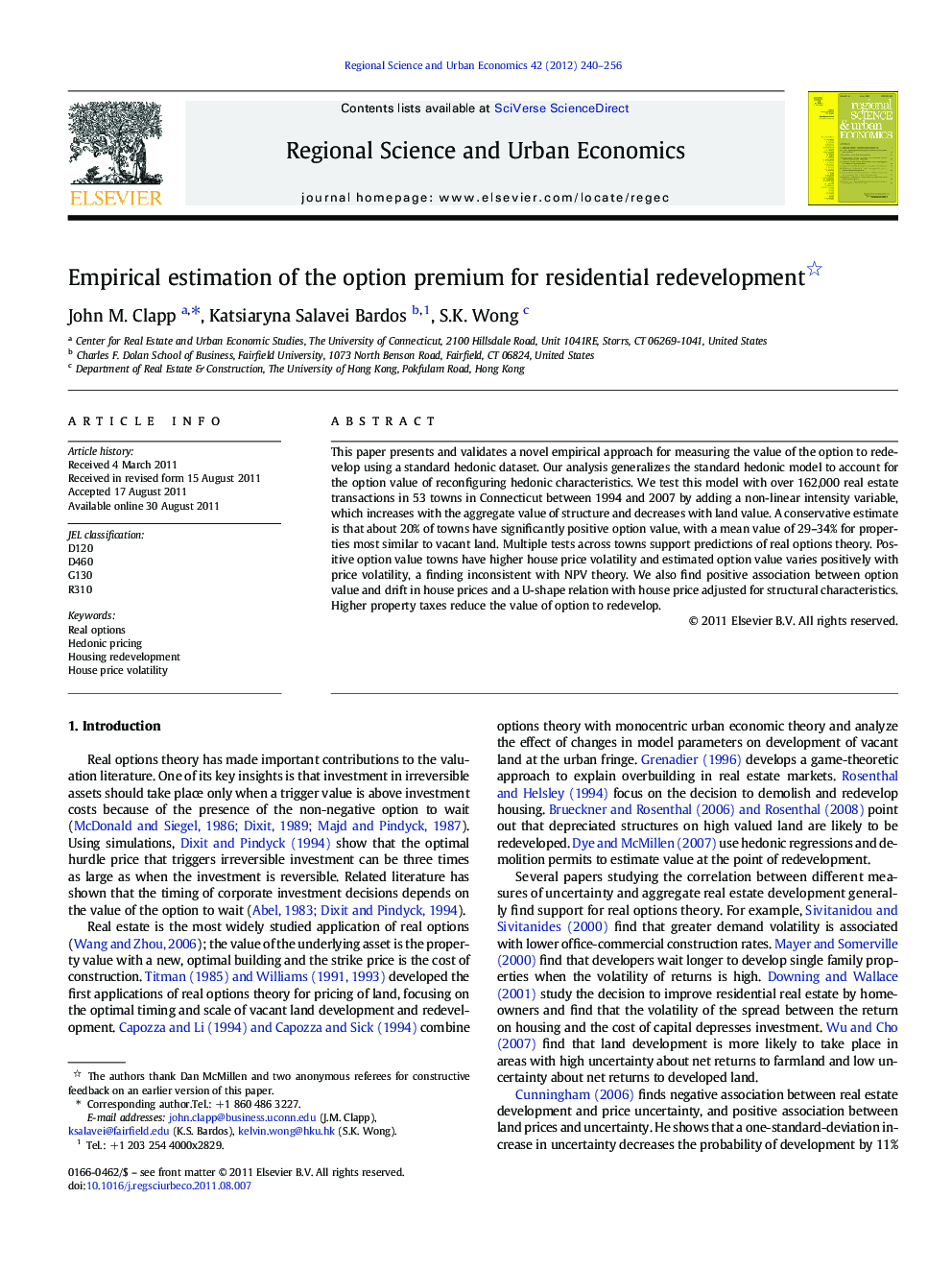| Article ID | Journal | Published Year | Pages | File Type |
|---|---|---|---|---|
| 981118 | Regional Science and Urban Economics | 2012 | 17 Pages |
This paper presents and validates a novel empirical approach for measuring the value of the option to redevelop using a standard hedonic dataset. Our analysis generalizes the standard hedonic model to account for the option value of reconfiguring hedonic characteristics. We test this model with over 162,000 real estate transactions in 53 towns in Connecticut between 1994 and 2007 by adding a non-linear intensity variable, which increases with the aggregate value of structure and decreases with land value. A conservative estimate is that about 20% of towns have significantly positive option value, with a mean value of 29–34% for properties most similar to vacant land. Multiple tests across towns support predictions of real options theory. Positive option value towns have higher house price volatility and estimated option value varies positively with price volatility, a finding inconsistent with NPV theory. We also find positive association between option value and drift in house prices and a U-shape relation with house price adjusted for structural characteristics. Higher property taxes reduce the value of option to redevelop.
► We estimate the option value to redevelop single family houses in 53 towns. ► 20% of towns have significantly positive option value. ► Estimated option value varies positively with house price volatility. ► Higher rates of drift in house prices increase the option value to redevelop. ► Higher property taxes reduce the option value to redevelop.
